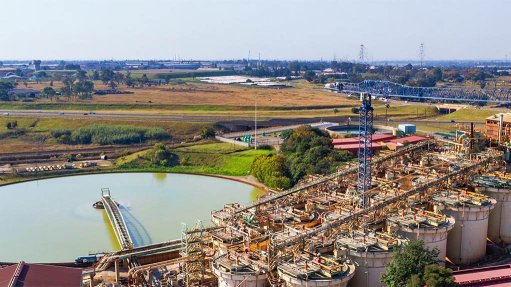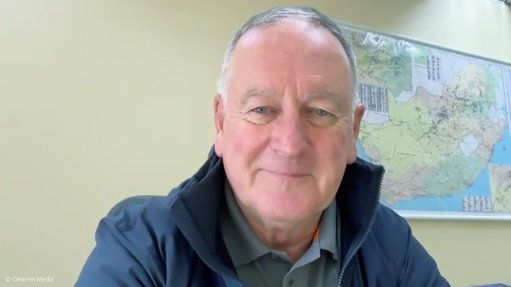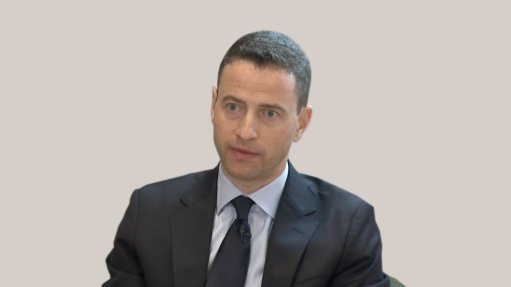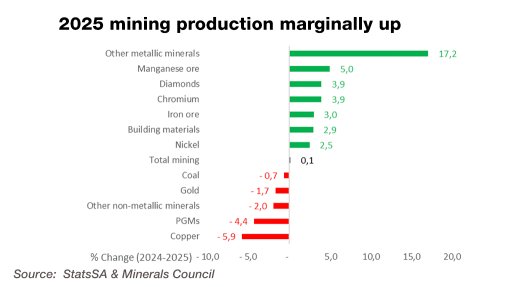‘Second wave’ of Operation Vulindlela set to prioritise ‘green and digital’ growth


South Africa could leverage its potent solar and wind resources to power green manufacturing
The ‘second wave’ of government’s Operation Vulindlela initiative is poised to be widened to include additional structural reforms to those that have been pursued to date in electricity, freight logistics, telecoms, water and skills with the goal of stimulating higher levels of economic growth over the coming five years.
Established jointly by the Presidency and the National Treasury in October 2020 to accelerate priority structural reforms to overcome problems identified as “binding constraints” to economic performance, Operation Vulindlela is expected to continue as a flagship programme under the government of national unity.
The Presidency’s project management unit head Rudi Dicks told attendees to a conference convened to deliberate on “Phase 2” that the intention was to consolidate the progress that had been made under the initial set of reforms, while adding additional reforms.
The initiative will continue to focus on a small set of priorities but could include new areas with the potential to lift South Africa out of its current low GDP growth trajectory, which had averaged at a paltry 1.1% since 2010, resulting in South Africa decoupling from other middle-income countries where growth had been significantly higher.
Operation Vulindlela’s Saul Musker said that the reforms pursued during Phase I, including those to alleviate loadshedding and improve the performance of the logistics system, would provide a significant boost to the economy in the medium term.
However, they were insufficient to drive a structural transformation of the economy and additional reforms would be required in the next phase to stimulate higher and more jobs-rich growth.
While the new priority areas were still to be finalised, Musker indicated that there was an opportunity to harness South Africa’s unique strengths and advantages to unlock growth that was both “green and digital”.
“Over the next five years, South Africa has an opportunity to accelerate growth through massive new investment in the energy sector, leveraging its unique solar and wind resources to reduce energy costs and power green manufacturing.”
In addition, there was potential to position South Africa as “a major player in the digital economy, creating jobs in business process outsourcing and digital services while encouraging a dynamic ecosystem for high-growth startups”.
Harnessing these new areas of growth, Musker said, would require a substantial increase in renewable-energy generation, as well as significant investment in digital public infrastructure.
Keeping Operation Vulindlela’s focus narrow could prove challenging, however, with delegates proposing various other potential areas of priority, from land and rural health reform, to literacy, water, critical-minerals exploration, housing and even competition and industrial policy.
The conference also deliberated on several other “binding constraints” that needed to be addressed in addition to the five focus areas tackled during Phase 1, including the deteriorating performance of local government and persisting spatial inequality, which meant that poor households continued to be located far from economic opportunities.
Modelling by the Bureau for Economic Research (BER) presented at the workshop highlighted the economic upside of persisting with the reform agenda.
It showed that reforms pursued under Operation Vulindlela could boost real GDP growth by 1.5 percentage points by 2029, which would translate to growth of 3.5% compared with the 2% growth assumed in its baseline scenario.
“The largest driver of this improvement in the growth trajectory stems from fixed investment, which is four percentage point higher by 2029, underpinned by robust private fixed investment,” BER’s Craig Lemboe told delegates.
“Given the improved energy availability and access to ports and railways, exports perform much better, reaching growth of almost 5% in 2029 verses the 3% modelled in the baseline,” he added.
Article Enquiry
Email Article
Save Article
Feedback
To advertise email advertising@creamermedia.co.za or click here
Announcements
What's On
Subscribe to improve your user experience...
Option 1 (equivalent of R125 a month):
Receive a weekly copy of Creamer Media's Engineering News & Mining Weekly magazine
(print copy for those in South Africa and e-magazine for those outside of South Africa)
Receive daily email newsletters
Access to full search results
Access archive of magazine back copies
Access to Projects in Progress
Access to ONE Research Report of your choice in PDF format
Option 2 (equivalent of R375 a month):
All benefits from Option 1
PLUS
Access to Creamer Media's Research Channel Africa for ALL Research Reports, in PDF format, on various industrial and mining sectors
including Electricity; Water; Energy Transition; Hydrogen; Roads, Rail and Ports; Coal; Gold; Platinum; Battery Metals; etc.
Already a subscriber?
Forgotten your password?
Receive weekly copy of Creamer Media's Engineering News & Mining Weekly magazine (print copy for those in South Africa and e-magazine for those outside of South Africa)
➕
Recieve daily email newsletters
➕
Access to full search results
➕
Access archive of magazine back copies
➕
Access to Projects in Progress
➕
Access to ONE Research Report of your choice in PDF format
RESEARCH CHANNEL AFRICA
R4500 (equivalent of R375 a month)
SUBSCRIBEAll benefits from Option 1
➕
Access to Creamer Media's Research Channel Africa for ALL Research Reports on various industrial and mining sectors, in PDF format, including on:
Electricity
➕
Water
➕
Energy Transition
➕
Hydrogen
➕
Roads, Rail and Ports
➕
Coal
➕
Gold
➕
Platinum
➕
Battery Metals
➕
etc.
Receive all benefits from Option 1 or Option 2 delivered to numerous people at your company
➕
Multiple User names and Passwords for simultaneous log-ins
➕
Intranet integration access to all in your organisation


















